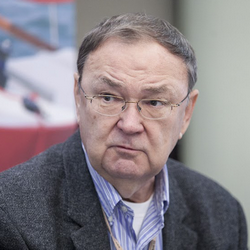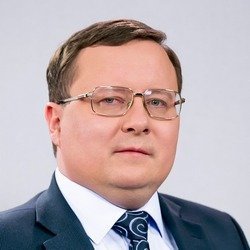Tatarstan anti-monopoly service workers call PEGAS Touristik owner’s company on carpet
Complaints of the Tatarstan office of the Federal Anti-Monopoly Service aren’t linked with tourism business: Ramazan Akpınar’s firm supplied jet fuel
The Tatarstan office of the Federal Anti-Monopoly Service (FAS) started to hear a legal action against Aviation Logistic Services. According to the Anti-Monopoly Service’s version, the company violated the established pricing procedure for jet fuel supplies. Since ALS occupies a dominating position in the market, it should have turned to the FAS before fixing prices for counteragents. Read in Realnoe Vremya’s report about the Kazan plane fuel operator, the free pricing cap permitted by law and experts’ opinion on the case’s prospects.
“They violate the established pricing procedure”
The commercial activity of Aviation Logistics Services drew the attention of the Tatarstan office of the Federal Anti-Monopoly Service. According to the case files, during an inspection, Anti-Monopoly Service workers found out that the supplier charged counteragents for filling aircraft according to a tariff established by the company’s internal order.
In the text published by the Tatarstan office of the FAS, the amount of tariff fixed by the supplier isn’t mentioned. However, according to the information published on the official website of ALS, this tariff is 1,410 rubles per tonne (VAT excluded).
The decision on assigning the case for hearing reads that “the activity of providing aircraft with jet fuel is regulated by the state,” and in accordance with the Statute on State Price (Tariff, Duties) Regulation for Services of Natural Monopolists at Transport Terminals, Ports, Airports, the tariffs “are fixed by regulatory agencies for every specific entity.”
The local FAS office concluded that ALS had a dominating position in providing aircraft with jet fuel at the Kazan airport, which is confirmed by a review of the competitive environment of jet fuel supplies, and the company was obliged to turn to Russia’s FAS to fix a tariff accordingly the current legislation.
“In the given circumstances,” the local FAS office makes a conclusion,” the actions of ALS in fixing a price and charging consumers without a tariff on providing aircraft with jet fuel set by an authorised state agency violate the pricing procedure established by regulatory acts.”
And as a result, in this case, the interests of a circle of consumers are infringed, since the latter have to pay for the services provided at an economically unfeasible price that wasn’t fixed by the state agency.
Was there indeed a violation?
Realnoe Vremya asked Director General of ALS Alexey Tochilin about the reasons for violating anti-monopoly legislation and planned actions due to the action launched. The answer will be published upon reception. Earlier, the Tatarstan office of the FAS commented on its position on the prospects of the case for Realnoe Vremya:
“The files read that ALS itself fixes tariffs for its counteragents according to an internal order, which is confirmed by the information provided by the company and the information from the official website of the company on the Internet. However, the current legislation obliges one to have tariffs on jet fuel supplies for aircraft approved by the Russian FAS, not a regional office. It will be possible to find out if this was done only during the trial, which will be on 2 December.”
So the FAS office gave us to understand that it is yet early to summarise the legitimacy of ALS’s actions.
There is competition, but there is none

Realnoe Vremya’s expert, partner of RusEnergy consultancy, analyst of the oil and gas sector Mikhail Krutikhin shares the same opinion:

“Income will cover the fines”

From the expert’s point of view, if they didn’t follow the rule, they didn’t for one of two similar reasons, either out of a desire to make money — the income made will this way easily cover the punishment looming for the violation — or simply because of negligence, as the tariff was set and they forgot to have it approved.
A company with Turkish tourist roots
As Realnoe Vremya was told in the Tatarstan office of the service, earlier, Aviation Logistic Services hadn’t violated anti-monopoly legislation.
According to Spark-Interfax service, it is a small enterprise with 23 staff members, has been operating in the fuel market for 12 years, since December 2009. The company’s authorised capital is 2 million rubles, sales revenue in 2020 totalled more than 578,2 million rubles, net income exceeded 9,9 million.
Owner of PEGAS Touristik tour operator Ramazan Akpınar’s is the only beneficiary of the company. In 2018, ALS supplied fuel to Belgorod and Chelyabinsk Oblasts, it has provided fuel in Kazan since 2020.